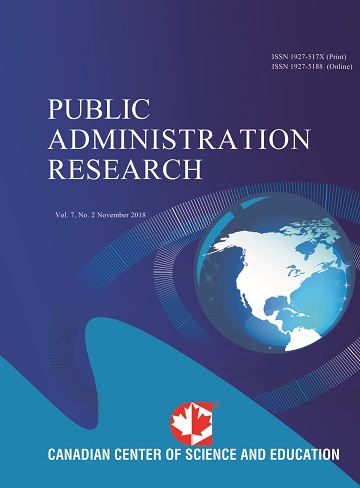The Politics of Fiscal Decentralization in Ghana: An Overview of the Fundamentals
- Samuel Ankamah
Abstract
Fiscal decentralization has gained support by most of the world’s leading development organizations including the World Bank, United States Agency for International Development and, Asian Development Bank among others in the last two to three decades. It is therefore of much importance that some form of thought is given to the operations of this system to make it more beneficial. Drawing selectively on large academic and practical literature on fiscal decentralization and the articles in this volume, this article outlines the state of fiscal decentralization in current times. It then goes on to outline some key arguments in favor of and against fiscal decentralization as a system of government. The theoretical framework of fiscal decentralization is also discussed in this article with regards to the stabilization, distribution and allocation functions. An overview of this system of government so far as Ghana is concerned has also been touched on with much emphasis on the legal framework and the key sources of finance for subnational governments. Finally, a number of factors for improving and making this system more beneficial and sustainable over time are identified.
- Full Text:
 PDF
PDF
- DOI:10.5539/par.v1n1p33
Journal Metrics
h-index (2017): 7
i10-index (2017): 6
h5-index (2017): 7
h5-median (2017): 13
Index
- COPAC
- CrossRef
- DTU Library
- EBSCOhost
- EuroPub Database
- Excellence in Research for Australia (ERA)
- Genamics JournalSeek
- Ghent University Library
- Google Scholar
- Harvard Library
- Infotrieve
- Jisc Library Hub Discover
- LOCKSS
- Mir@bel
- Norwegian Centre for Research Data (NSD)
- Open J-Gate
- PKP Open Archives Harvester
- Publons
- ROAD
- Scilit
- SHERPA/RoMEO
- Stanford Libraries
- Ulrich's
- UniCat
- Universe Digital Library
- UoS Library
- WorldCat
Contact
- Gabriel TaiEditorial Assistant
- par@ccsenet.org
